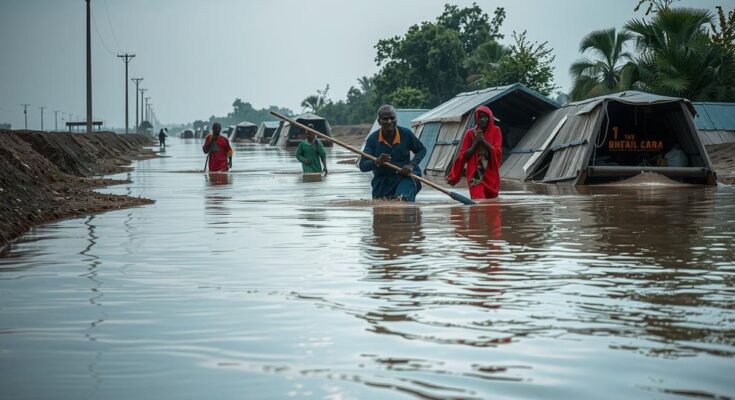In South Sudan, annual flooding forces tens of thousands to live precariously by the Jonglei Canal, as the expanding Sudd wetland submerges villages and damages agricultural lands. Residents face dangerous conditions while navigating through floodwaters to reach medical assistance, underlining the urgency of addressing this ongoing crisis.
In South Sudan, flooding has evolved into an annual calamity, forcing tens of thousands of residents to reside precariously along the Jonglei Canal. Historically, seasonal floods have been integral to the existence of pastoral communities surrounding the Sudd, Africa’s largest wetland. However, the relentless expansion of the swamp continues to inundate villages, devastate agricultural lands, and result in substantial livestock losses. Numerous residents recount perilous journeys, sometimes wading for hours through hazardous waters, teeming with the threat of poisonous snakes, to access the nearest medical facilities.
Flooding in South Sudan is primarily attributed to environmental changes within the region, which have seen increased rainfall and rising water levels in the Sudd wetland. Communities that traditionally adapted to seasonal variations now find themselves increasingly vulnerable as the swamp expands, consuming habitable land and hampering livelihoods. The Sudd wetland, crucial for pastoralism, is being eroded not only by natural occurrences but also by the impacts of climate change, exacerbating the humanitarian crisis faced by these communities.
The ongoing flooding crisis in South Sudan highlights the urgent need for effective disaster management and climate resilience strategies. As communities grapple with the consequences of rising waters and disrupted livelihoods, it is imperative for local and international stakeholders to prioritize interventions that enhance infrastructure, improve access to healthcare, and support sustainable agricultural practices. The plight of these vulnerable populations underscores a broader need for global attention and immediate action to alleviate their suffering.
Original Source: apnews.com




